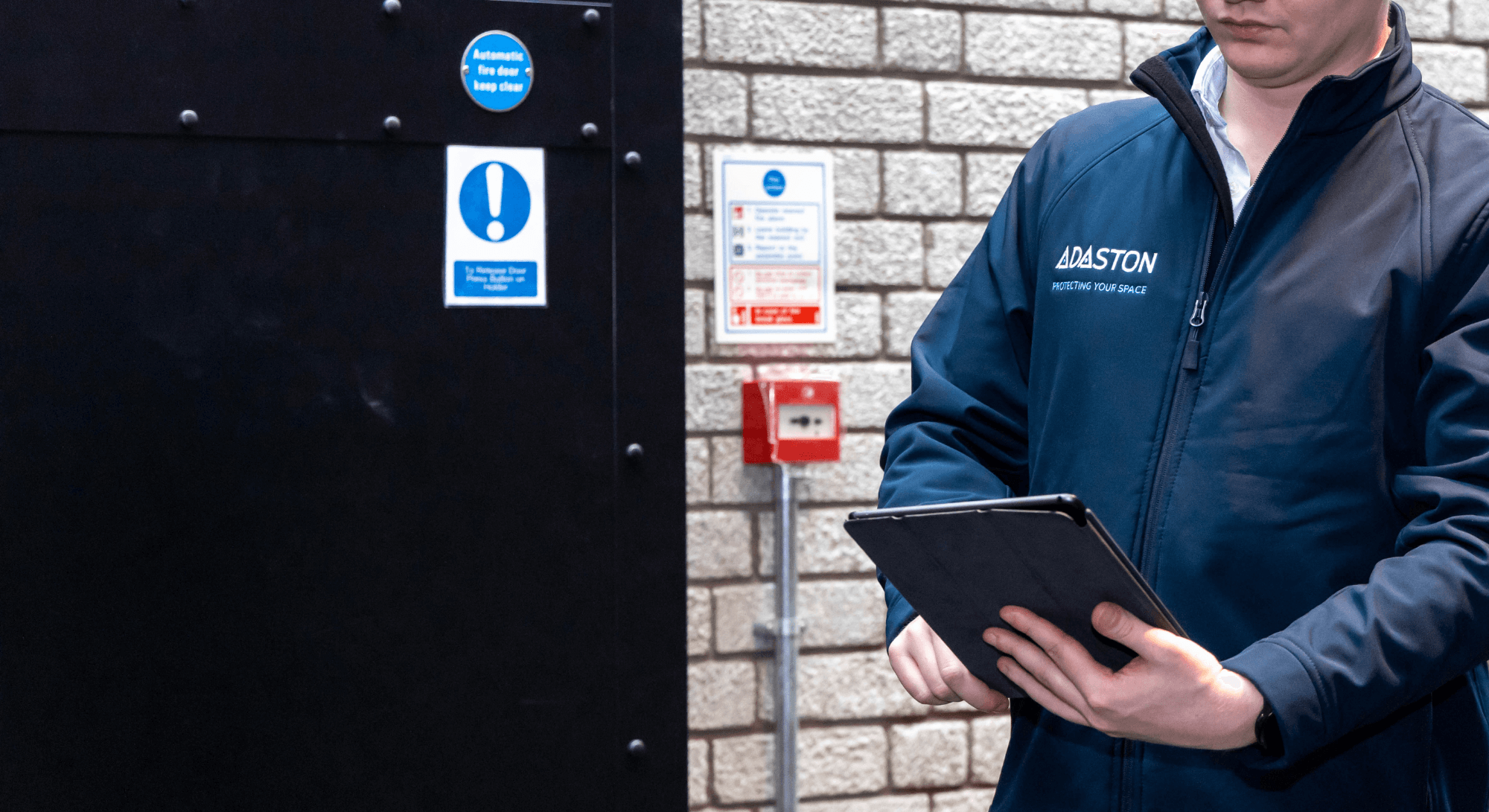-
Safeguarding the
community -
Customised Solutions
for Every Scenario -
Certified Expertise
and Accredited Services -
Trusted by a wide
variety of businesses -
Protecting the integrity
of your buildings
Passive Fire Protection Company
Adaston is an independent, third-party accredited, passive fire protection company operating to the highest standards of professionalism, quality and integrity. Across our installation & remediation and surveying & consultancy teams, we deliver market leading services to our clients spanning the UK.
With projects in hospitals, student accommodation and residential high-rise buildings, we have extensive experience across all building types in the public and private sector. Whether you are looking for fire door installation, fire compartmentation or a comprehensive survey, we are here to help.
At Adaston, we stay ahead of all regulatory and legislative changes, providing our clients with market leading consultancy services to ensure their buildings, policies and practices are fully compliant across their estate.
For more information, take a look at our services, give our team a call or send us an email.
Services
View AllCase Studies Completed Projects
View AllAdaston rose to the occasion.
Everyone involved has commented on the professional approach adopted and the high standard of work continuously delivered. We look forward to working with Adaston again in the future.

University of York
They are informed, approachable and very reactive to requests.
We have appointed Adaston on projects, to support and oversee passive fire protection. This has proven to improve quality of application and provided further education, through toolbox sessions and provided a specialist point of contact.

Melanie Robinson
Group Fire Safety Engineer
Their professionalism, efficiency, and dedication to fire safety are truly commendable
The team's in-depth knowledge and attention to detail ensured that no aspect of fire safety was overlooked. Their reports were exceptionally well-organized and detailed, providing us with a comprehensive understanding of the fire safety status at each project site.

Pencho Studenkov
Senior Fire Surveyor
Their attention to detail, expert technical knowledge and quality delivery make them an exemplary contractor in the industry.
Adaston have completed multiple passive fire protection projects for Synergize across the UK. Their attention to detail, expert technical knowledge and quality delivery make them an exemplary contractor in the industry.
Mark Loftus
Managing Director
Despite operating in highly challenging environments they have continually rose to the occasion.
Adaston are our trusted provider of a broad range of passive fire protection projects from surveys to installation works. Despite operating in highly challenging environments they have continually rose to the occasion.

Richard Crotty
CEO
Adaston’s team delivers exceptional results with efficiency and teamwork
The Adaston on-site team has been great! Not only in their direct workload repairing and replacing 200+ fire doors to the site but also in their collaboration with the operations team. They have consistently exceeded expectations when necessary, all the while converting a challenging environment into a streamlined and efficient operation.

Bruntwood
What is Passive Fire Protection?
Passive Fire Protection (PFP) is an essential element of a building’s construction. It takes many forms including: fire doors, fire/smoke dampers, fire curtains, firestop sealants, intumescent coatings, external cladding and internal installation of fire stopping measures. PFP prevents or slows the spread of fire and smoke through a building and is present in buildings throughout almost all sectors of the construction industry, healthcare settings, high and low-rise residential sites, industrial buildings and many more.
Passive fire protection ensures that, in the event of a fire, enough time is allowed for the evacuation of occupants and for emergency services to do their job as safely as possible. It’s part of how a building is constructed, so most passive fire protection goes unseen. It’s found behind walls, above ceilings and within riser cupboards.
Read More
PFP differs from active fire protection, such as fire alarms and extinguishers, as it requires no physical interaction once installed to perform as required. It includes but is not limited to:
- Fire doors for compartmentation
- Firestop sealant systems
- Insulation and cladding
- Intumescent coatings
Passive fire protection separates a building into fire compartments, each of which helps to keep fire and smoke contained for a certain period. In turn, this helps to minimise the risk to property and people.
As fire regulations change, some older buildings will need adjustments made to ensure they remain compliant. At Adaston, we provide complete surveys of current passive fire protection installed in a building. Once the survey is complete, our expert installation team is on hand to assist with any and all remediation work required.
Our case study on an occupied apartment complex shows how beneficial and straightforward it is to increase fire protection measures, ensuring the safety of everyone living there.
Why Should I Have Passive Fire Protection?
Passive fire protection is essential to ensure a building performs as expected in the event of a fire, buying time for people to evacuate and for emergency services to extinguish the fire.
Without adequately installed passive fire protection, fire and smoke can rapidly spread through a building. It places occupants’ lives at risk and doesn’t safeguard the building against collapse.
Naturally, PFP minimises any financial losses from a fire. By limiting the spread of fire and reinforcing vital structural elements, it helps to maintain the foundations of a building. It reduces the chance of collapse and protects any contents inside.
It should also be noted that correctly installed passive fire protection is commonly a core requirement of a building’s insurance coverage. Without it, you could be at severe financial risk if claiming against a fire. Lastly, According to Global Market Insights, the passive fire protection market is estimated to be worth $31 billion by 2026 due to increasing building & construction activities across the world and ongoing research and development of new passive fire protection systems.
Is Passive Fire Protection a Legal Requirement?
Passive fire protection is mandatory in almost all buildings in England, as per the Fire Safety Order 2005.
As fire regulations change, some buildings will need adjustments to ensure they remain compliant. At Adaston, we provide surveys of current passive fire protection. Once the survey is complete, our expert installation team will undertake any remediation required.
Featured Articles
View All
Subscribe
To stay updated with industry news and regulations!
And receive your free fact sheet regarding the new 2022 regulations


























